
What is a Compliance Management?
CyberSRC’s Compliance Management service describes the goal that organizations aspire to achieve in their efforts to ensure that they are aware of and take steps to comply with relevant laws, policies, standards and regulations. Due to the increasing number of regulations and need for operational transparency, organizations are increasingly adopting the use of consolidated and harmonized sets of compliance controls. CyberSRC supports organizations for end-to-end implementation, advisory, consulting and readiness to achieve compliances and certifications.
We provide services in the domain, Compliance Management. Our services include but we are not limited to:
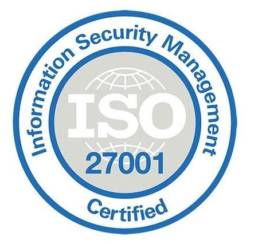
ISO 27001
ISO/IEC 27001 is the International Standard for Information Security Management. It outlines how to put in place an independently assessed and certified Information Security Management System. This allows you to more effectively secure all financial and confidential data, so minimizing the likelihood of it being accessed illegally or without permission.

ISO 22301 BCMS
ISO 22301:2019, Security and Resilience – Business Continuity Management Systems – Requirements, has replaced the previous ISO 22301:2012, Societal security — Business Continuity Management Systems — Requirements.
ISO 22301 specifies requirements to plan, establish, implement, operate, monitor, review, maintain and continually improve a management system to protect against, reduce the likelihood of occurrence, prepare for, respond to, and recover from disruptive incidents when they arise.

ISO 27701 PIMS
ISO/IEC 27701:2019 is a privacy extension to the International Information Security Management Standard, ISO/IEC 27001 (ISO/IEC 27701 Security techniques – Extension to ISO/IEC 27001 and ISO/IEC 27002 for Privacy Information Management – Requirements and guidelines).
ISO 27701 specifies the requirements for – and provides guidance for establishing, implementing, maintaining and continually improving – a PIMS (Privacy Information Management System).

NIST
The National Institute of Standards and Technology is a non-regulatory government agency that develops technology, metrics, and standards to drive innovation and economic competitiveness at U.S.-based organizations in the science and technology industry. As part of this effort, NIST produces standards and guidelines to help federal agencies meet the requirements of the Federal Information Security Management Act (FISMA). NIST also assists those agencies in protecting their information and information systems through cost-effective programs.
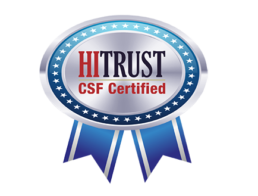
HiTrust
HITRUST collaborated with healthcare, business, technology, and information security leaders and established the HITRUST CSF to be used by any and all organizations that create, access, store, or exchange protected health information (PHI). HITRUST is driving adoption and widespread confidence in the HITRUST CSF and sound risk mitigation practices through the HITRUST community that provides awareness, education, advocacy, support, knowledge-sharing, and additional leadership and outreach activities.
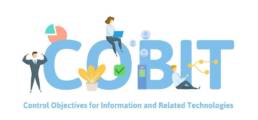
COBIT
COBIT stands for Control Objectives for Information and Related Technology. It is a framework created by the ISACA for IT governance and management. It was designed to be a supportive tool for managers—and allows bridging the crucial gap between technical issues, business risks, and control requirements. COBIT is a thoroughly recognized guideline that can be applied to any organization in any industry.
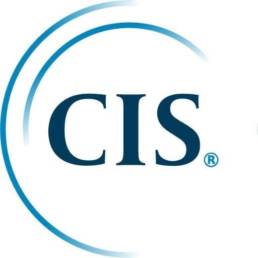
CIS
The Center for Internet Security, Inc. (CIS®) makes the connected world a safer place for people, businesses, and governments through our core competencies of collaboration and innovation.
CIS is community-driven nonprofit, responsible for the CIS Controls and CIS Benchmarks, globally recognized best practices for securing IT systems and data. They lead a global community of IT professionals to continuously evolve these standards and provide products and services to proactively safeguard against emerging threats.

PCI DSS
A PCI DSS Report on Compliance (ROC) is required with the aid of firms with massive transaction volumes and ought to be carried out through a QSA who will present a formal document to the Payment Card Industry Security Standards Council (PCI SSC) to attest that your corporation is in full compliance.
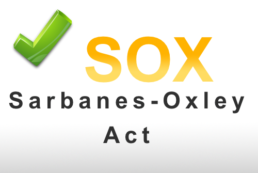
SOX
The Sarbanes-Oxley Act of 2002 is a law the U.S. Congress passed on July 30 of that year to help protect investors from fraudulent financial reporting by corporations.
The Sarbanes-Oxley Act of 2002 came in response to financial scandals in the early 2000s involving publicly traded companies such as Enron Corporation, Tyco International plc, and WorldCom.
The high-profile frauds shook investor confidence in the trustworthiness of corporate financial statements and led many to demand an overhaul of decades-old regulatory standards.
Why CyberSRC®?
Established in January 2018, CyberSRC Consultancy offers the full machination of cyber security services ranging from threat intelligence, VMS to general advisory services in areas pertaining to Cyber security such as vulnerability attacks, compliance, and cyber security regulations, and laws. We are into system audits such as ISNP Audits, NBFC Audits, UCB Audits, PPI Audits, and SEBI Audits. We provide our solutions with better accountability. We are a certified assurance firm. We are an ISO 27001 certified organization, backed by a very diverse and dynamic team which have a combined experience.
